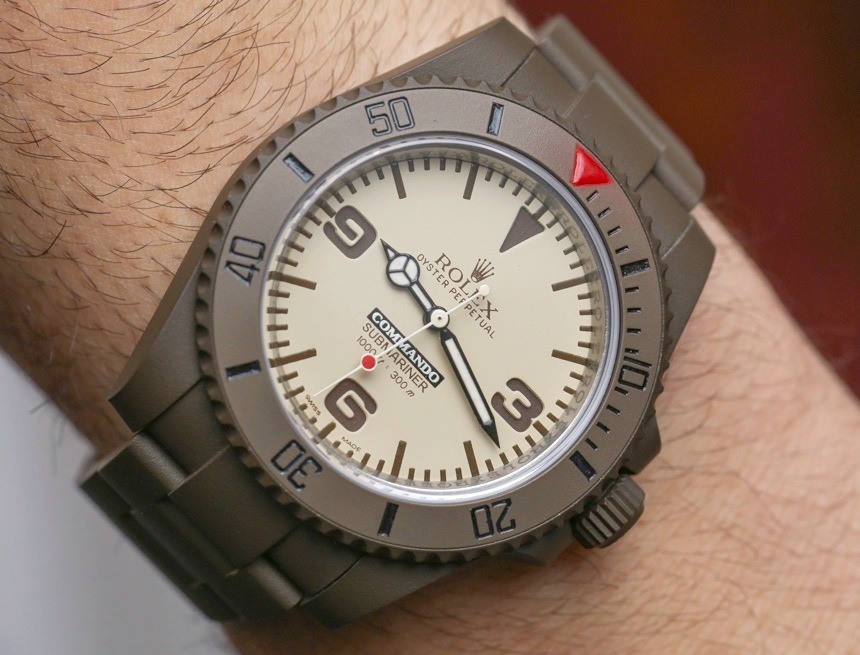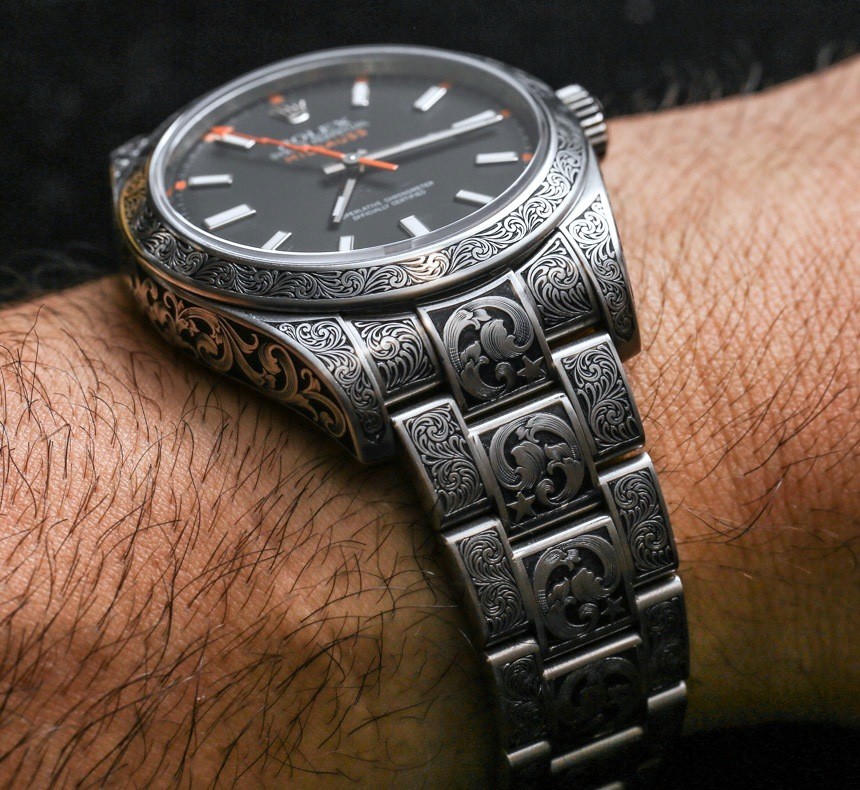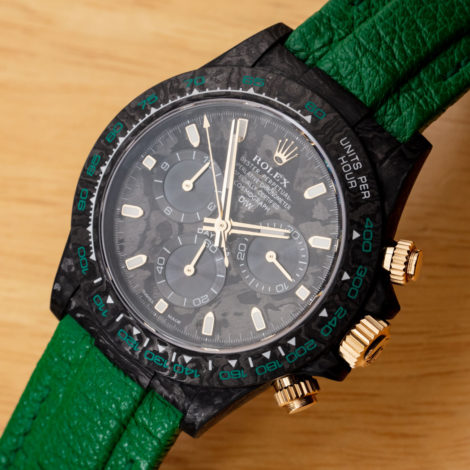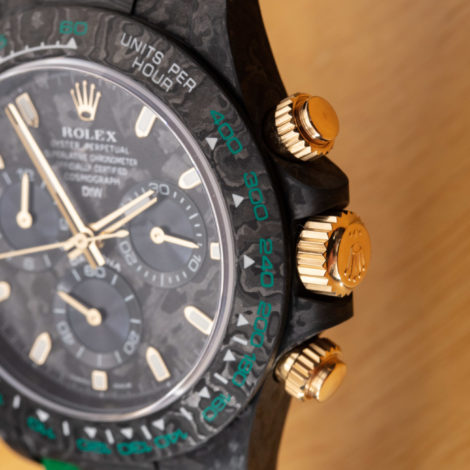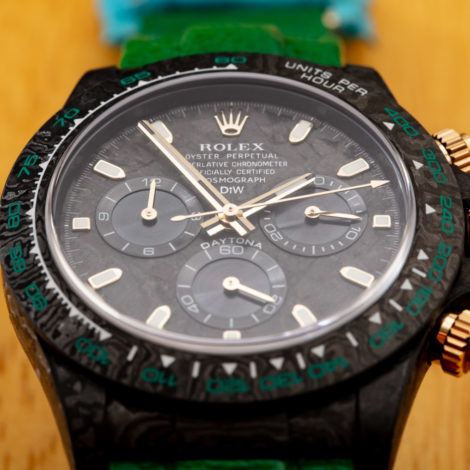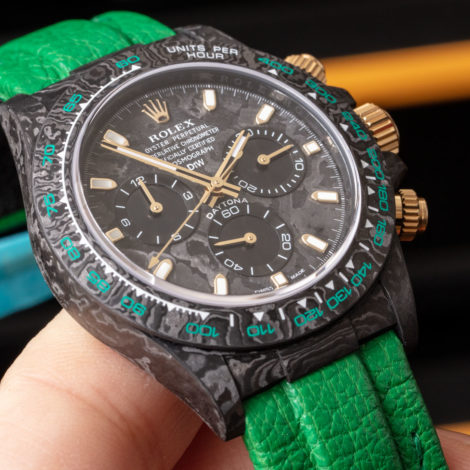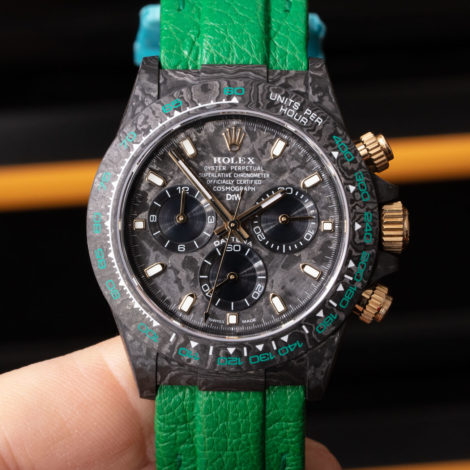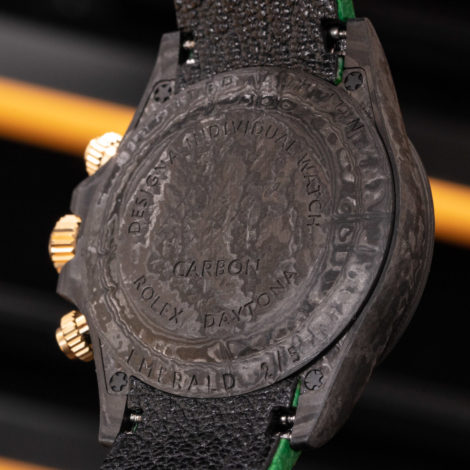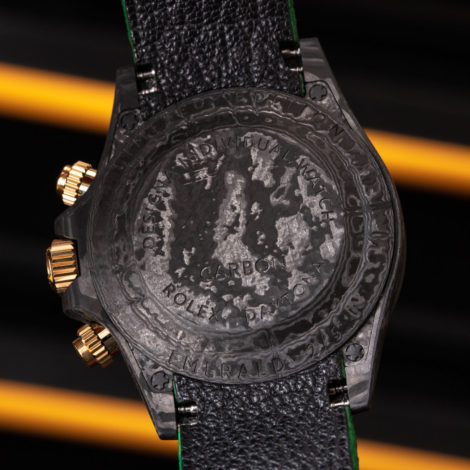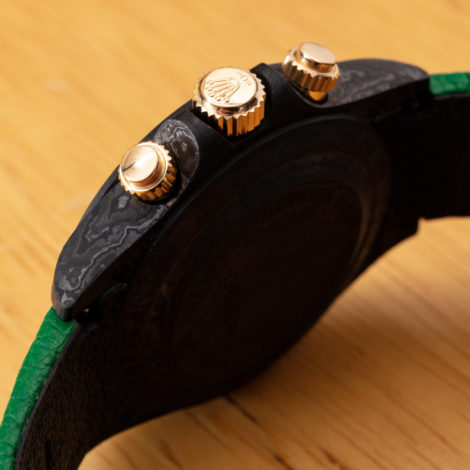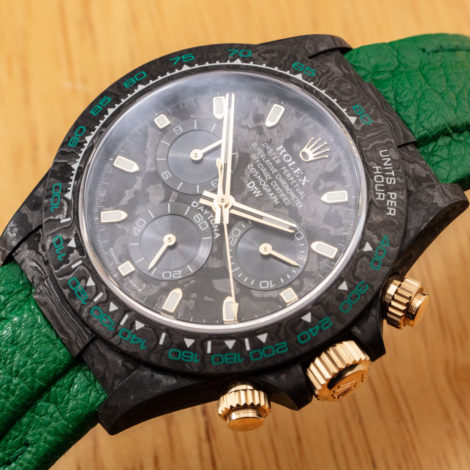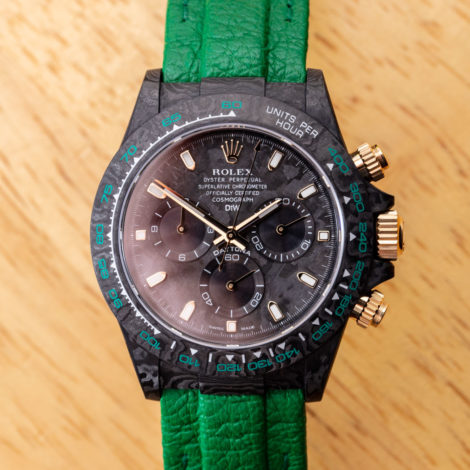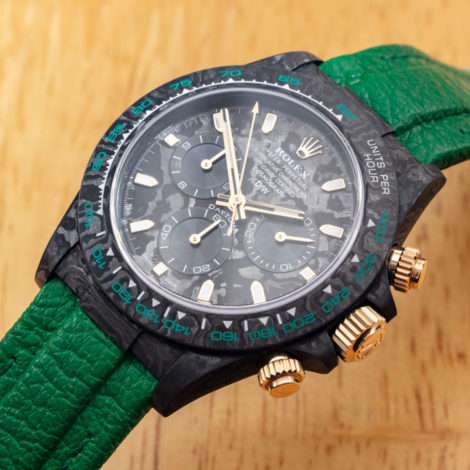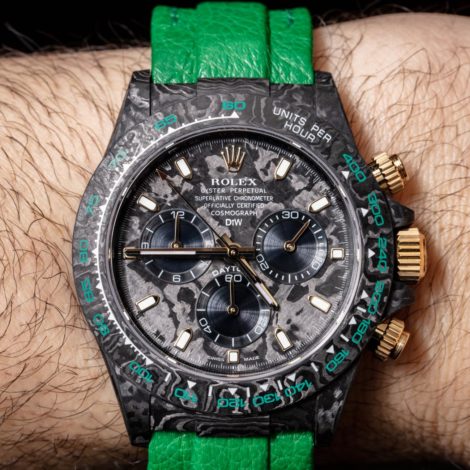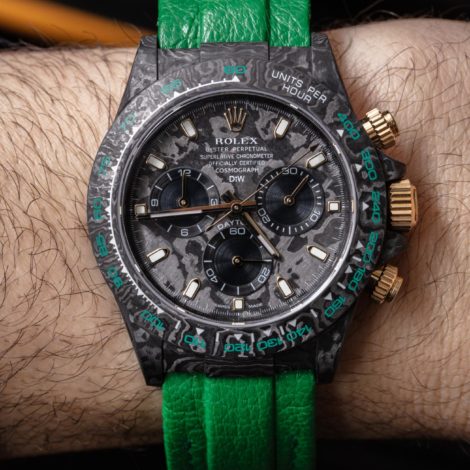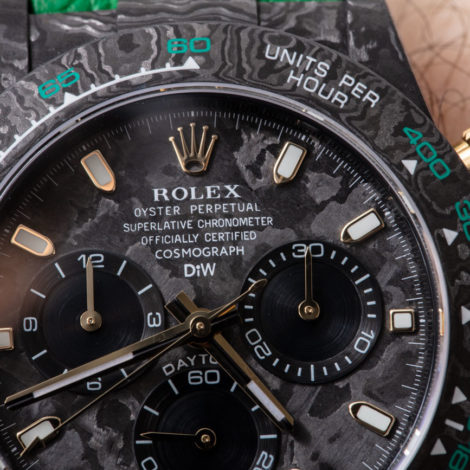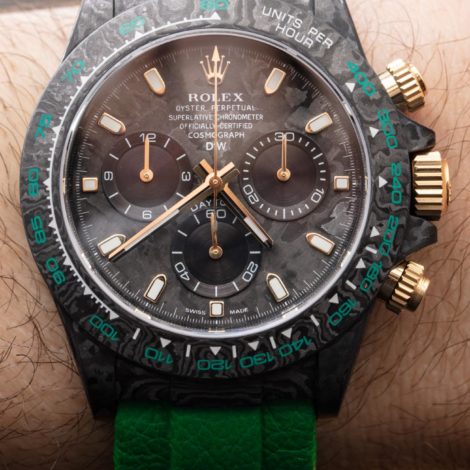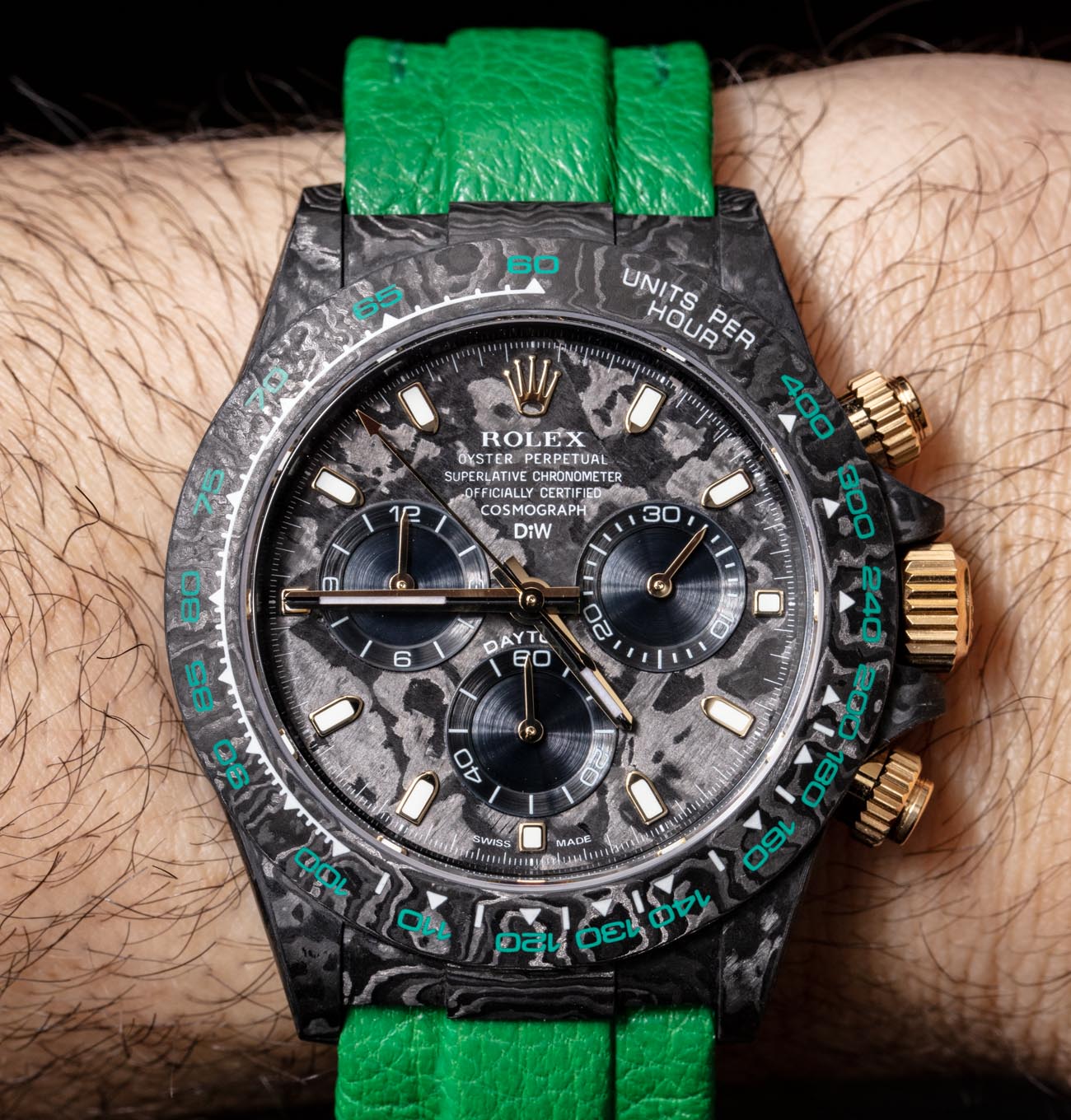
Designa Individual (DiW) is one of a series of small companies around the world that, for at least part of their business, customize Rolex timepieces. As abundant as a aftermarket Rolex watches are, the industry can’t even agree on a term for them. These watches also happen to be quite controversial, as Rolex officially condemns them and because they often cost significantly more than the retail prices of the original Rolex timepieces they began as.
Nevertheless, the world of aftermarket/customized/modified/Frankenstein/bespoke., etc., Rolex watches is popular and only growing in size as the underlying Rolex watches themselves appear to be in continued high demand. Probably the most famous of aftermarket Rolex customizers is George Bamford, who recently stopped publicly selling Rolex watches to focus on other products, such as his own watches and those from LVMH group brands (such as Zenith or TAG Heuer). Bamford and others gained notoriety first for coating Rolex watch cases in colors such as black, and then later changing dial colors and other details on the watch. That said, what Bamford and his contemporaries did was not invent the aftermarket Rolex, but rather made it a commodity. For generations, Rolex dealers and customers have been doing aftermarket gem-setting and other dial modification or case work, though most of these aftermarket Rolex watches were produced on a one-by-one basis for individual clients. None of them competed for factory Rolex timepieces.
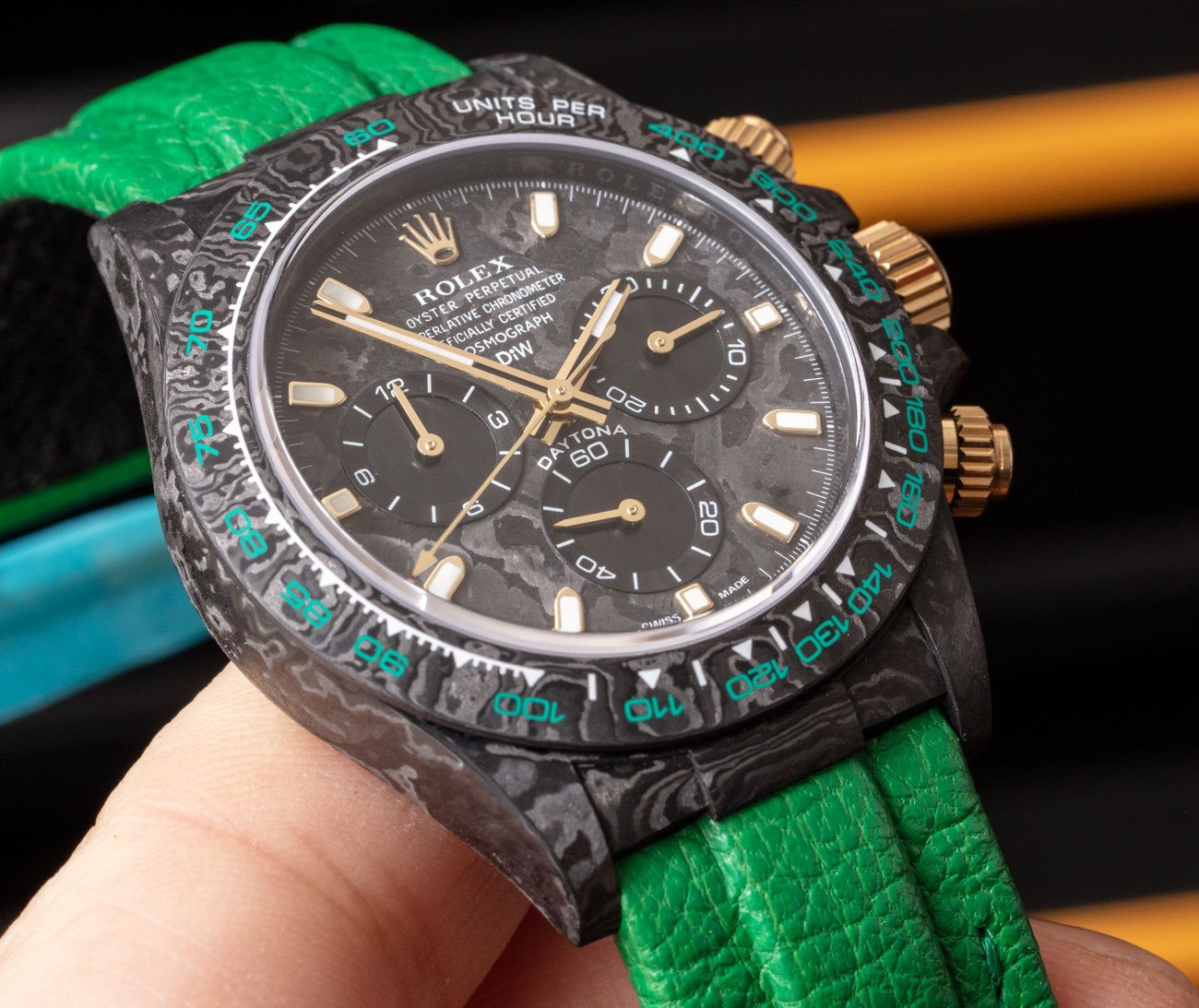
The Internet really made the aftermarket watch a problem for Rolex in Geneva. The brand’s reason for being aggressive toward aftermarket Rolex watches is sensible and two-fold in its logic. First, they are concerned people will mistake them for actual watches that Rolex sells and that this will lead to brand intellectual property dilution effects. I agree with this sentiment, though Rolex might be over blowing the actual number of these watches that are out there. In fact, what Rolex is mostly concerned with are not brand new Rolex watches that have been modified and re-sold, but rather older Rolex watches that have been “spruced up” to bring new life into them but ended up not resembling an actual watch Rolex produced in the past. Rolex has gone to court more than a few times over this matter and cases have often settled in their favor. Rolex is serious about protecting its brand and they don’t let too much go. My understanding is that most, if not all, aftermarket Rolex dealers get a not entirely friendly letter from a Rolex attorney at some point. Whether or not they abide by the demands is an entirely different story, of course.
Rolex’s second concern about aftermarket versions of their watches is also sound, but it is hard to know the actual gravity of the concern. Rolex worries that aftermarket Rolex watches will not only look different from their stock models, but will also have an inferior level of quality. That does sound a bit pretentious but, if you know Rolex well, you also know they they indeed have the best quality in a number of areas and important details. At the least, a boutique operation like an aftermarket watch modifier is not going to have the equipment necessary to even match other high-end watch brand quality levels. Sometimes the naked eye can see these issues, sometimes they can’t. That said, Rolex is technically correct that aftermarket Rolex watches are simply not as well made (or guaranteed for durability) as what comes out of the Rolex factory.
What Rolex must admire is some of the elegant creativity and artistic flair that many aftermarket Rolex watches have. No doubt, many of these aftermarket Rolex watches can be easily considered pop art — and valuable pop-art on top of that. I have personally put on a number of aftermarket Rolex watches that looked incredibly cool, if not incredibly well made. However, I am a seasoned expert in this field and know that these are not Rolex products, but rather Rolex products that have been later modified by a company that has nothing to do with Rolex.
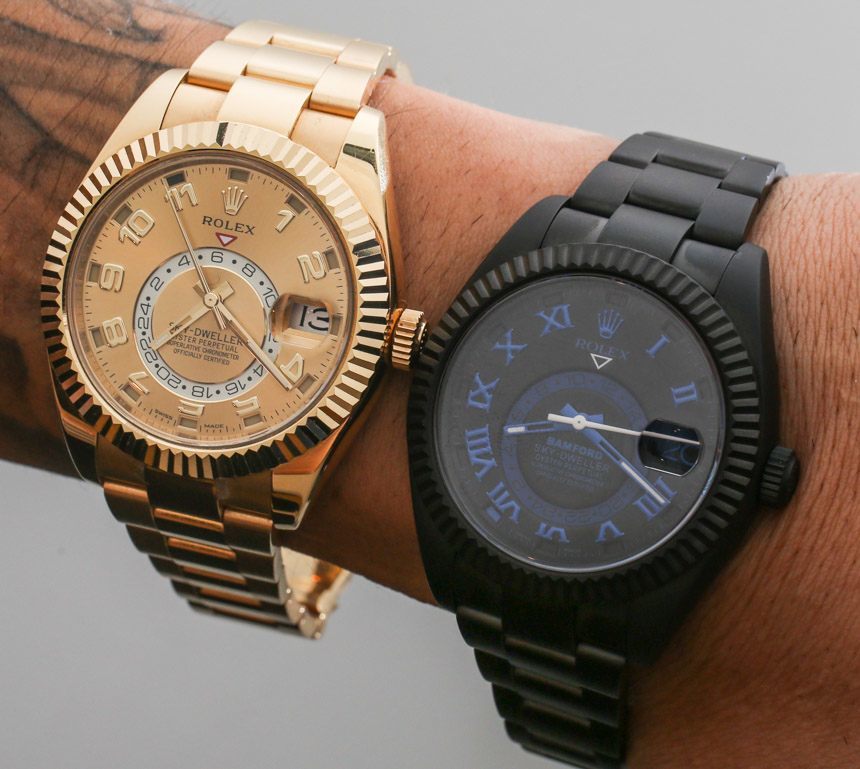
Rolex prefers that all Rolex watches out there represent only the designs they make and the quality they can control. They cannot, however, legally tell someone who has purchased the watch that they cannot hire a third-party company to modify that legally purchased Rolex product. This is why aftermarket dealers operated, but even though they are working with products that bear Rolex’s name, they are not (ideally) reproducing Rolex’s name. They are simply modifying a watch as a car customized might take an existing car and modify it for the car’s owner. The aftermarket car analogy is fitting on a number of levels, and I find that it is helpful to explain why there are aftermarket Rolex watches.
Aftermarketers who purchase Rolex timepieces must be careful not to breach Rolex’s intellectual property rights, such as reproducing their trademark. That means a Rolex modifier could get into trouble if they create a brand new dial for a Rolex watch and put the Rolex logo on it. All the modifier could do is somehow adapt the original dial and make sure the Rolex logo is still visible. If a modifier watches to create a new dial to put into a Rolex watch, then it can’t have a Rolex logo on it if playing fair.
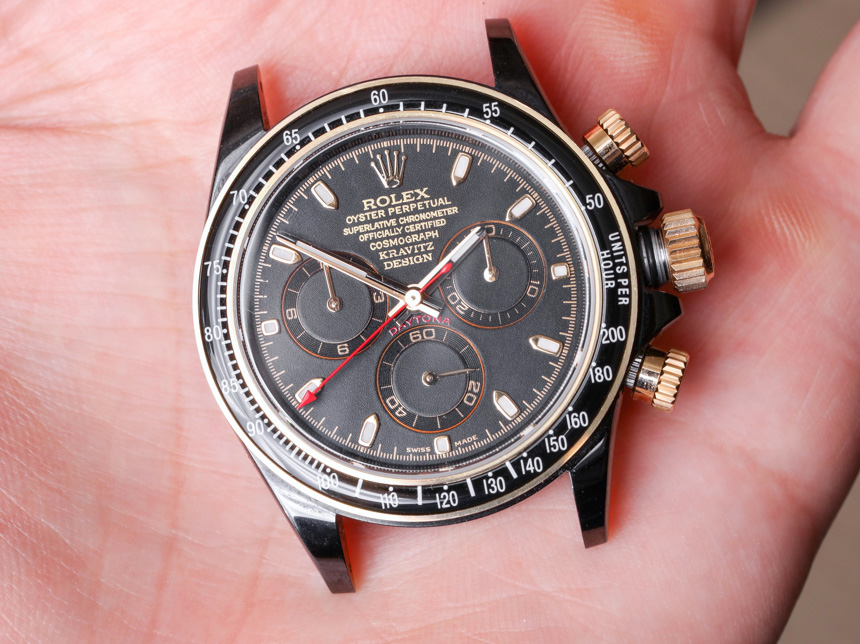
Consumers interested in purchasing an aftermarket Rolex should certainly ask a lot of questions about where the watch came from. I’ve actually seen some Rolex aftermarket companies supply original parts along with the swapped out aftermarket parts. That way you get the entire original Rolex along with the aftermarket pieces. This, however, doesn’t make sense if an aftermarket Rolex watch destroys the original nature of the watch case, dial, or bracelet parts. If investing is your worry, then it is probably wise to consider any aftermarket Rolex modifications as having the effect to entirely remove the original value of the watch. If that same watch has a similar or greater valued than an aftermarket Rolex, then that is only because it has value as an entirely different classification of non-original aftermarket Rolex watch. Rolex will not service these timepieces, and their potential resale value is in their artistic appeal, subjective sense of quality, or other form of notoriety.
The main reason aftermarket Rolex watches are so expensive is because they all have to start with an authentic Rolex. I am sure that at least some aftermarket Rolex watches make use of Rolex timepieces that are either incomplete or have damaged parts. Creating a modified Rolex out of these products turns them from being mostly worthless (save for parts) into a different type of commodity.
It is not uncommon for aftermarket Rolex watches to cost double or more the original retail price of the underlying watch. As the resulting customized Rolex is not as valuable as the original, more often than not, and because they can in many instances not easily be resold, customers of aftermarket Rolex watches (especially the brand new pieces) tend to be the comfortably rich. This is a relatively small demographic these days, as even very wealthy watch buyers in today’s economic environment are mindful of a watch’s resale value. My point is that, as of now, the majority of aftermarket modified Rolex watches are playthings for people who can easily afford to spend far more than the retail price for a Rolex watch, but also do not have any qualms about getting, on par, an item of lower monetary value. There is, however, no price you can pay for having an object you love and find beautiful, or an original and exclusive item that perhaps only you will ever own.
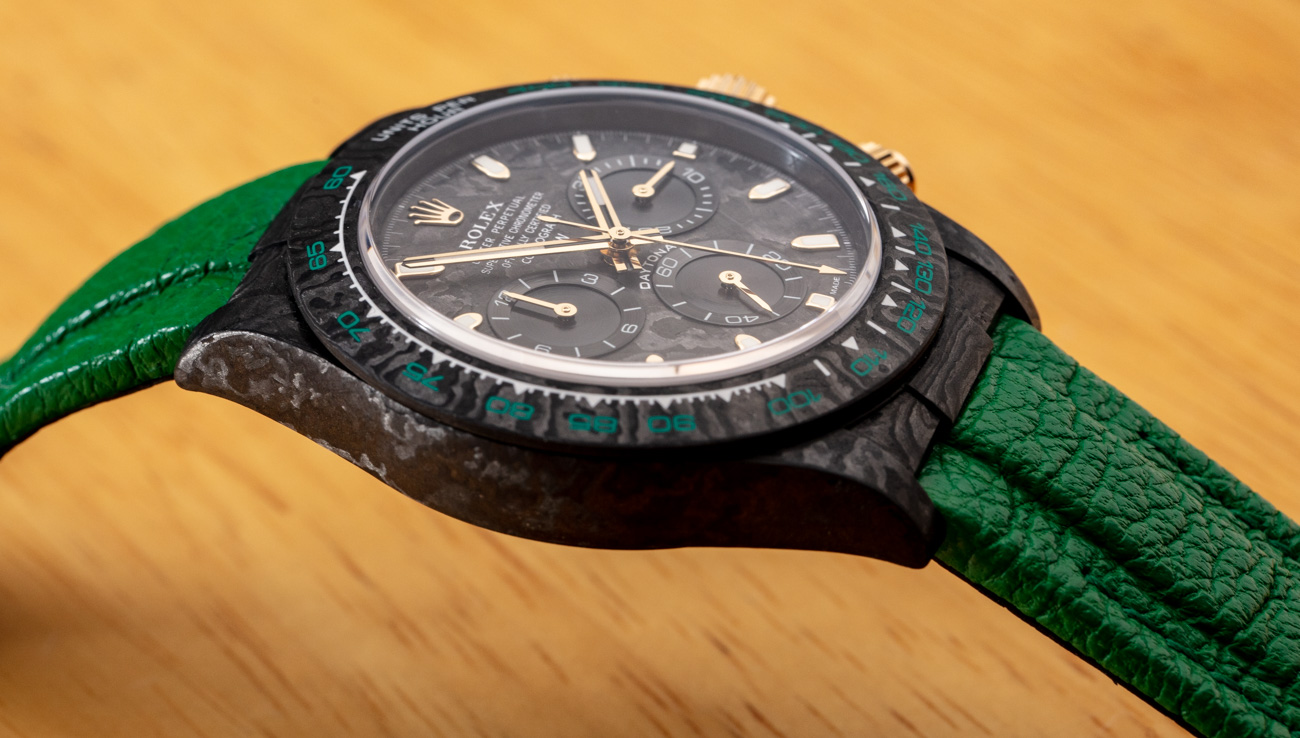
This all leads me to a hands-on look at one aftermarket modified Rolex Oyster Perpetual Cosmograph Daytona from a company called Designa Individual that it calls the “Carbon Emerald.” This is one of many aftermarket Rolex watches I’ve handled. It is, however, the first I’ve seen with an all-carbon case. The company is very proud of the precision cut of the carbon case, which has an elegant texture and is very light compared to a metal Daytona watch. Designa Individual seemed to be going for a bit of a Richard Mille theme but in the form of a customized Daytona. It works, and the combination of 18k yellow gold, black carbon, and the green strap make for a very inspired look. Note that Designa Individual offers a small assortment of limited-edition Rolex Daytona with carbon cases and color accents (and straps) other than green. The Carbon Emerald is, however, the only model so far with the gold hands, hour markers, pushers, and crown.
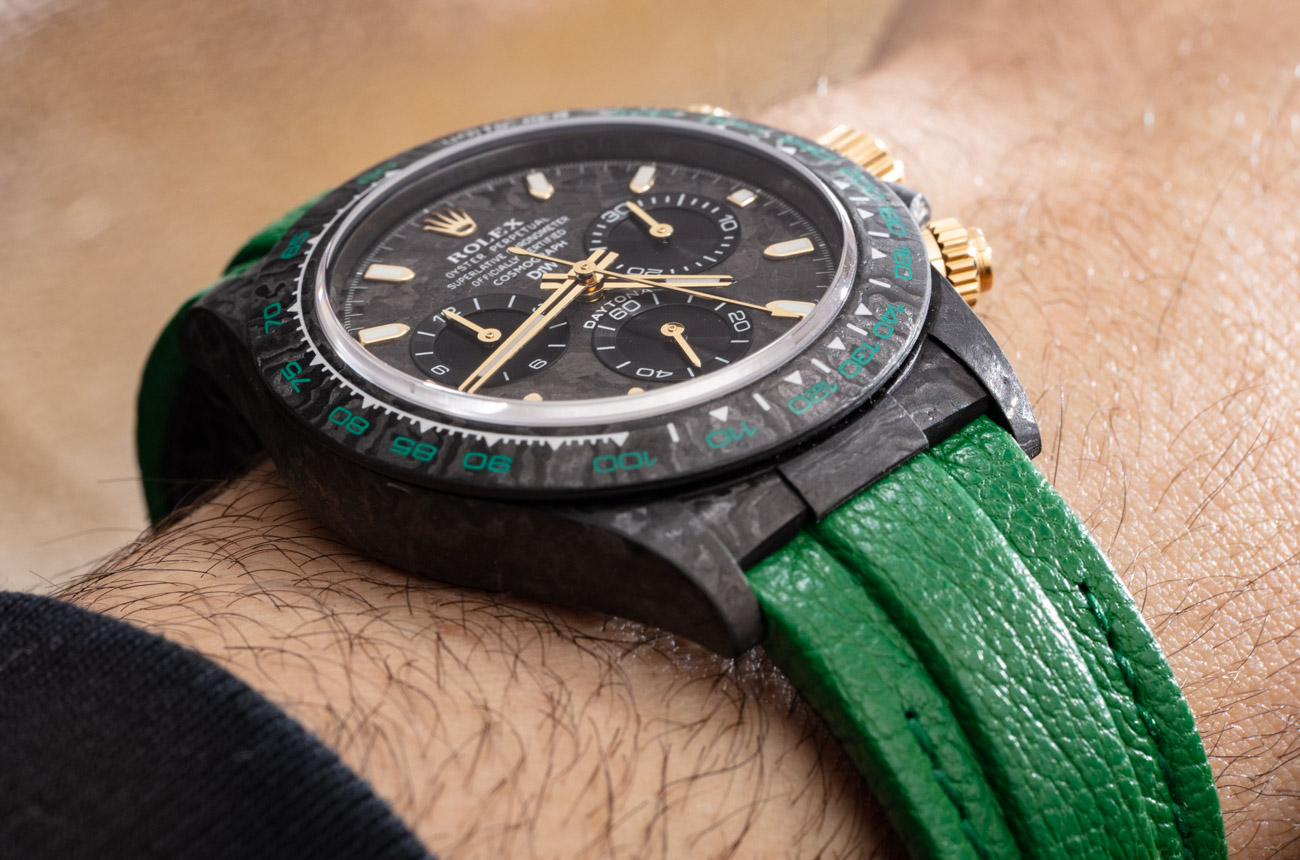
For the strap Designa Individual uses a leather strap with a Velcro strap. Since it doesn’t size very well, they actually include three straps of various lengths with the kit, though there isn’t a sizing tool to help the owner (who paid quite a bit of money) properly swap out the straps.
Aesthetically, the carbon dial, case, bezel are nice looking. The Daytona is such a universally appealing watch that it would probably look good in most any material or color. There is certainly going to be at least a few people that for them the ideal color tone for the Daytona is indeed black carbon, gold, and green. And again, the key technical talking point of the Designa Individual is the Carbon Emerald’s very lightweight.
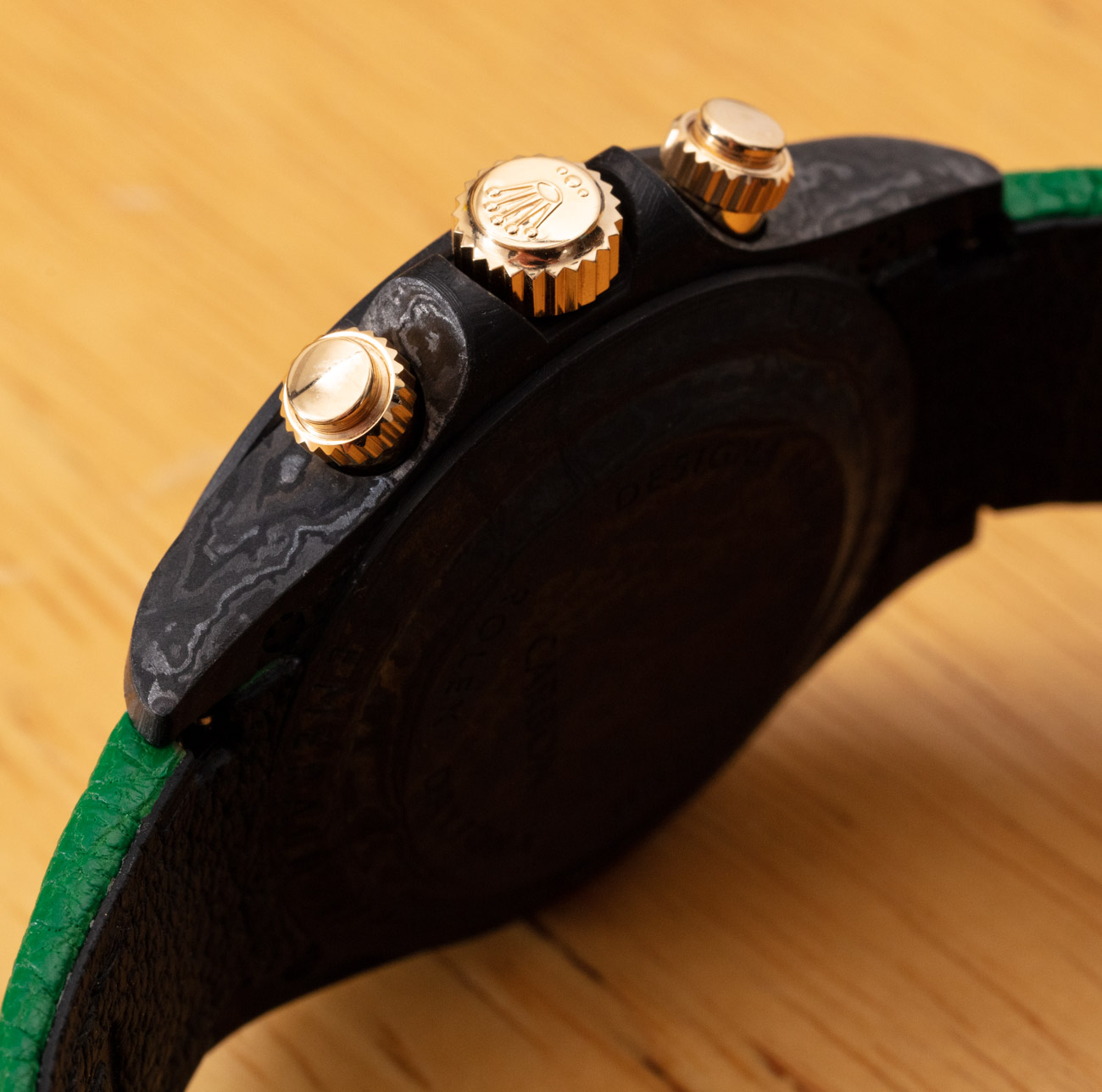
Inside the watch is Rolex’s caliber 4130 automatic chronograph movement (certainly made by Rolex). What isn’t quite clear in the Carbon Emerald is what else is made by Rolex or what it started out as. What I feel should bother consumers is if they don’t know what an aftermarket Rolex watch started life out as — there should always be a before and after picture. This is, if anything, to ensure that for the price of the product, an entirely new or at least complete Rolex was sacrificed for a bacchanalian customization ritual.
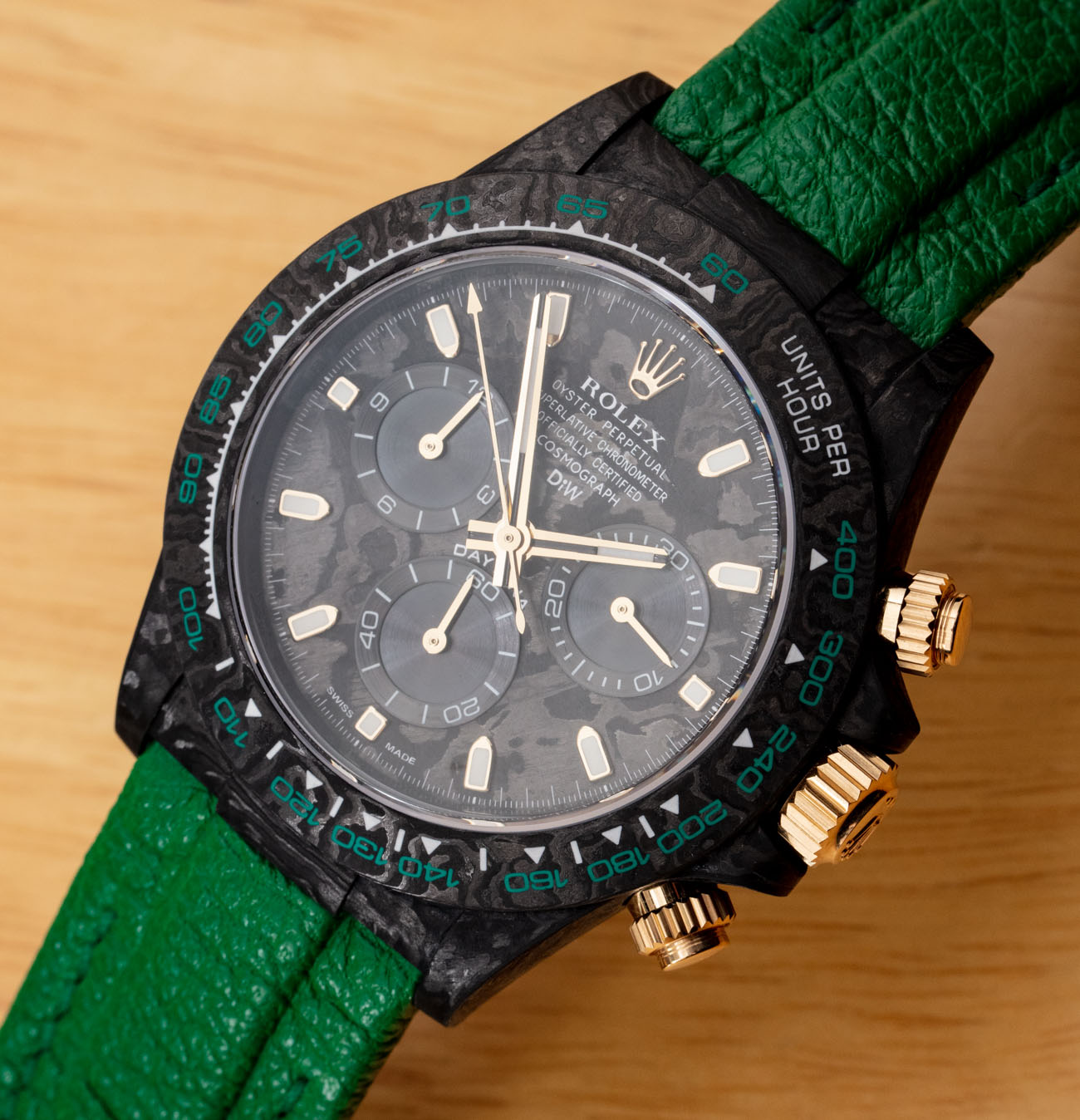
So while I know that Designa Individual created an aftermarket Daytona 40mm-wide case, bezel, and dial, I don’t know where the hands and hour markers came from. My assumption is that the watch’s sapphire crystal, hour markers, hands, and Rolex logo are carefully pulled from original Rolex watches and carefully reapplied on an aftermarket dial. The problem is that I am not sure, and Designa Individuals’ website is silent on the matter. For a price like this, I really believe consumers expect more communication and information about where an aftermarket Rolex originally came from. Perhaps not all consumers will be as concerned, but in my opinion, enough will.
Purchasing an aftermarket Rolex timepiece is not without considerable risk. Anyone getting one should know that aftermarket modified Rolex watches do not hold value like “factory Rolex watches” and, in many instances, will not be serviced by Rolex. To counter this lack of Rolex warranty, aftermarket Rolex modifiers (including Designa Individual) offer their own warranties (theirs is seven years) — so, at least there is something in place. Price for the (limited edition of five pieces) Designa Individual (DiW) Carbon Emerald aftermarket modified Rolex Daytona watch is 47,290 Euros. Learn more about Rolex watches here. Learn more about Designa Individual here.
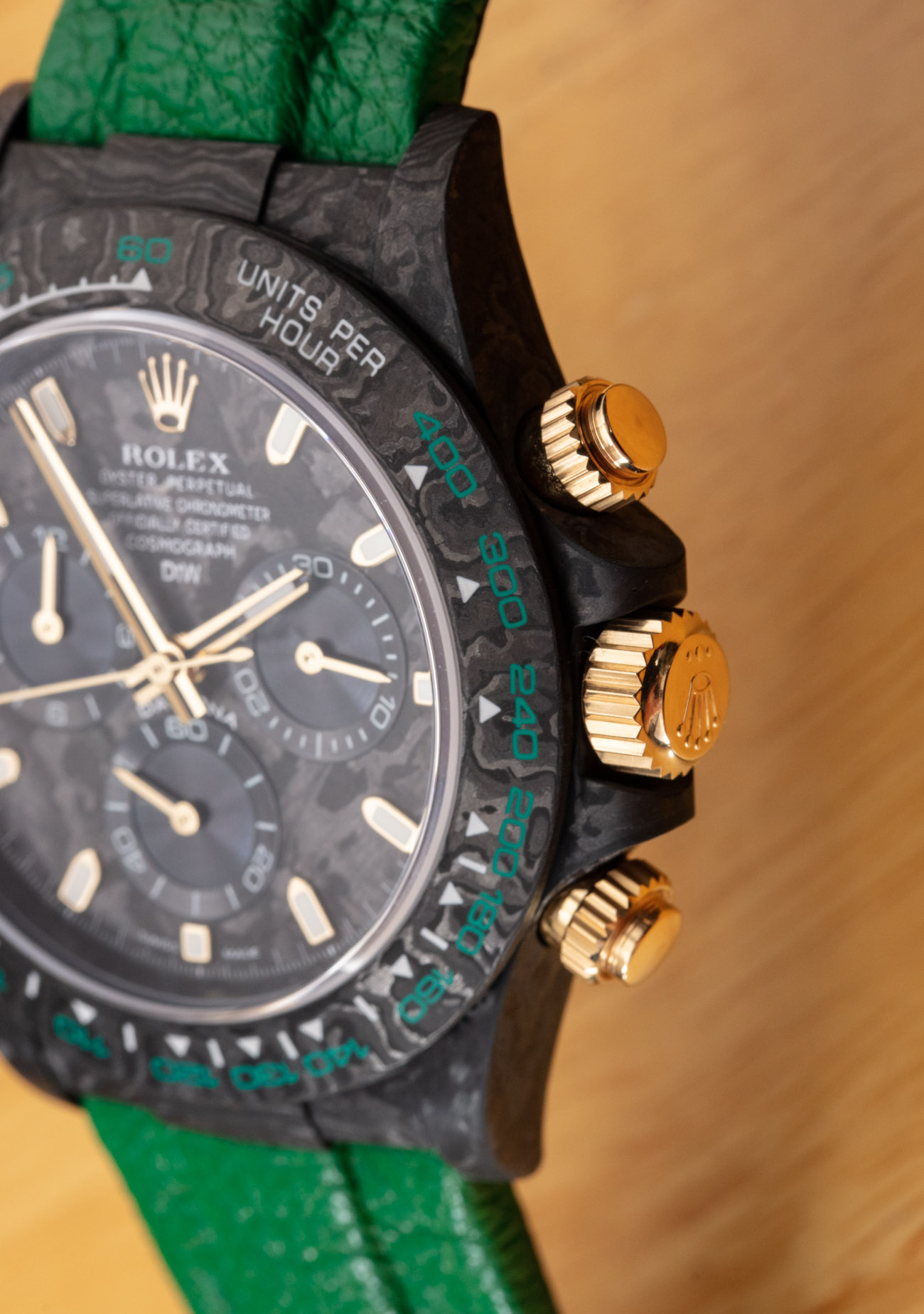
I’ve seen a number of people absolutely adore their aftermarket modified Rolex watches, but in general I advise against them as purchases for all but the most experienced of watch buyers. The upside is originality within a universally known brand. That right there is why there is even a market for modified Rolex timepieces. It has never really been to increase the value of a Rolex watch, but it understandably comes with a high asking price since the modifiers both need to make a profit while also covering their expenses along with the purchase of a Rolex watches.
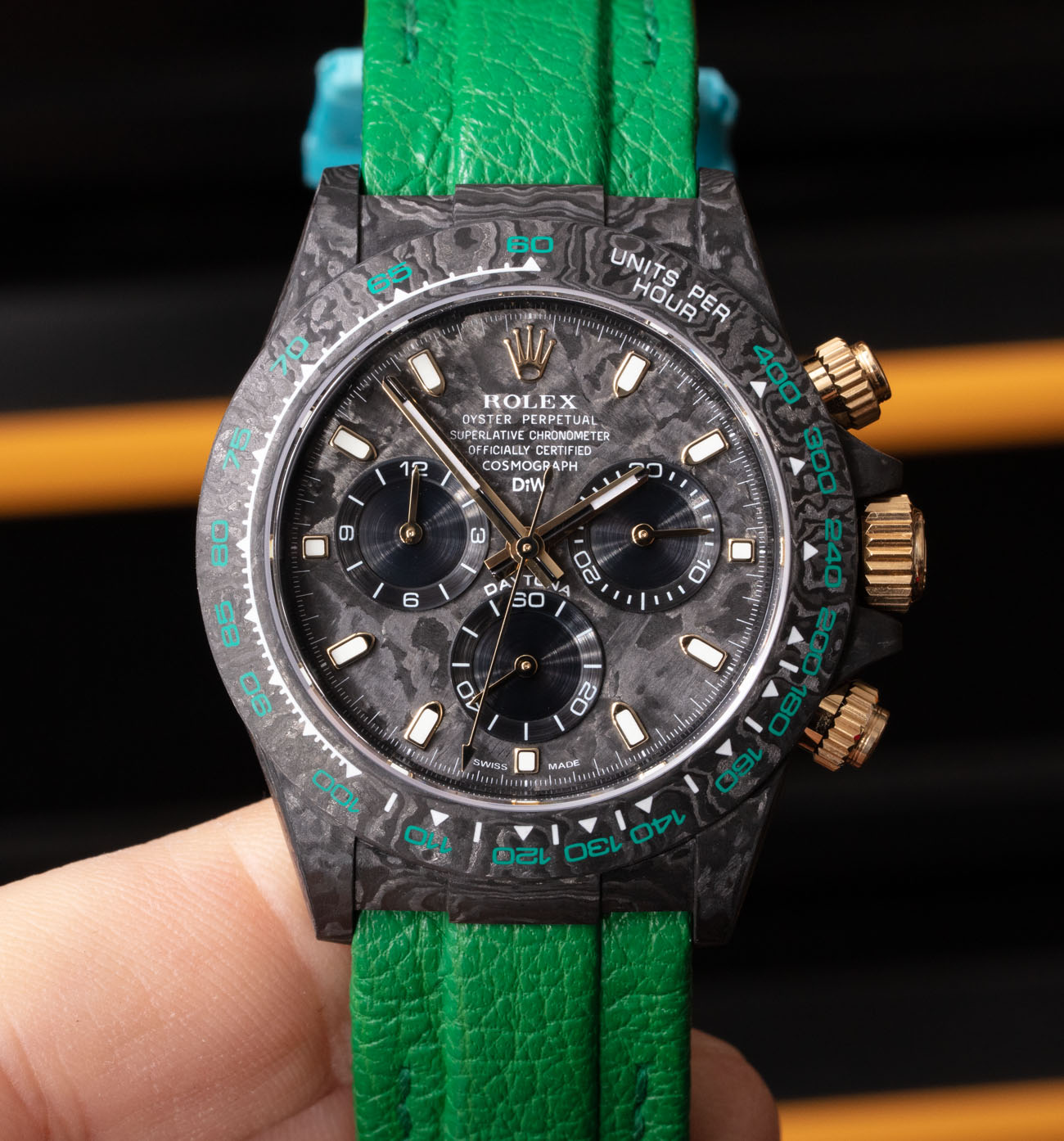
Ethically, aftermarket modified Rolex watches can go from kosher to infringing… to flat out fake watches quite quickly. Considerable gray area can exist between watches which specifically announce they are not made by Rolex and those which the seller may hope are passed off as original Rolex timepieces. In some instances, only the most sophisticated consumers will know the difference. A good sign to look for are aftermarket Rolex watch modifiers who place their name on the dial. This makes it clear to anyone looking at the watch that it isn’t a “Rolex original” which makes them more legally kosher and I think helps increase the pride with which the wearer can don them. This all has me thinking about aftermarket engraved Rolex watches, that remain my current favorite type of modified Rolex watch.

